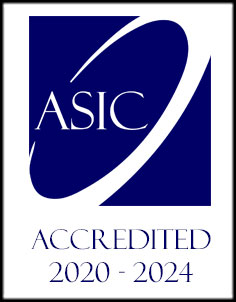Course Overview
Trade policy, including in particular the role that free trade agreements at bilateral and regional levels can play in helping to create successful economies, is becoming increasingly important.
The Strategic Trade Policy Course will provide those in trade, foreign, finance and other relevant ministries with an understanding of trade policy in the wider context of economic diplomacy and the world framework for international trade.
The course is facilitated by experts and includes lectures and interactive sessions. It also includes academic and practitioner guest speakers drawn from the fields of international trade economics and international trade and investment law.
The course explores how to identify a country’s economic interests, including consideration of comparative advantage. The course also explores how to engage with business and other stakeholders, how to build influence and alliances, and how to enhance negotiating skills.
The course also covers global trade and investment trends and free, fair, equitable and sustainable trade. It explores investor protection and public interest overrides.
Finally, the course looks at the interface between trade policy and trade promotion, to ensure that maximum benefit is derived from free trade agreements. Similarly, the course considers the interface between investor protection and investment attraction, ensuring that improvements in the business environment are an integral part of investment attraction.
Course Objectives
The course is designed to help participants build on their existing knowledge and skills in trade policy and reflect on how they might help their organisations deliver better outcomes. Key areas the course focuses on are:
- Understanding trade policy in the wider context of economic diplomacy
- Understanding of current and potential future frameworks for international trade
- Understanding the key economic principles affecting trade policy and how they can be applied
- Increasing understanding of evaluation of trade policy
- Understanding the importance of stakeholders and effective stakeholder management
- Exploring approaches for better influencing and negotiation
- Understanding the importance of free, fair, equitable and sustainable trade
- Understanding the differences and tensions between domestic and international policy
- Reviewing key trends in global trade and their implications
- Building a deeper understanding of investor protection, public sector overrides and developments in inter-state dispute settlement
- Understanding the interfaces between trade policy and trade promotion and between investor protection and investment attraction
- Starting to develop action plans to apply learning from the course
- Sharing good practice and experience.
Agenda
Day 1
Chairman’s Welcome
Delegates' introductions and discussion
Why is FDI important
Mega trends shaping the global investment landscape
Different forms of investment
History of investment attraction
Comparative advantage
Trade liberalisation
Protectionism
How do you work with business?
Which markets, sectors and companies to target
Business environment
Investor protection
Transparency and accountability
Use of incentives
Location decision making process
Quality and cost factors
Who to interact with and how
Day 2
Destination marketing
Destination marketing imperatives
Best practice examples
Destination versus proposition marketing
Evolution of destination marketing
Challenges of investment attraction
Consistency of message
Enquiry handling techniques
Prioritising enquiries
Recording data
Case studies
How to be a good sales person
Step by step approach to targeting
Channels
Best practice examples
Key account managements
Value propositions
Tiers of clients
Processes
Day 3
Multilateralism, Regionalism and Bilateral Agreements
Different types of agreements
Challenges and Opportunities
Case Studies
Consumer drivers of fair trade policies and implications for multinational business and producer countries
Multilateral ethical trade strategies and vested national, commercial and sectoral interests
Implications for trade and investment
Day 4
Capacity building
Range of services
Decisions on focus
Charging policy
Metrics
Surveys of clients
Alignment of staff with the targets
Continuous improvement
Feedback into resource allocation
Day 5
Decisions on focus - markets, sectors, clients
Strategy
Channels
Presence overseas
Skill sets of staff
Culture / values
Alignment of staff with the strategy
Training
Skill sets of staff for trade and investment - do they differ?
Action Planning

